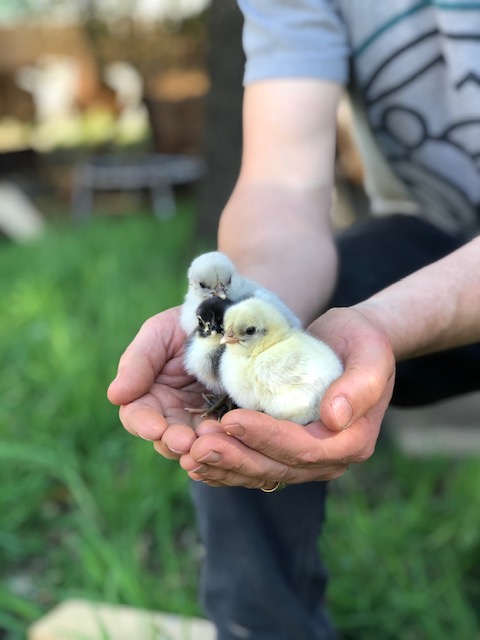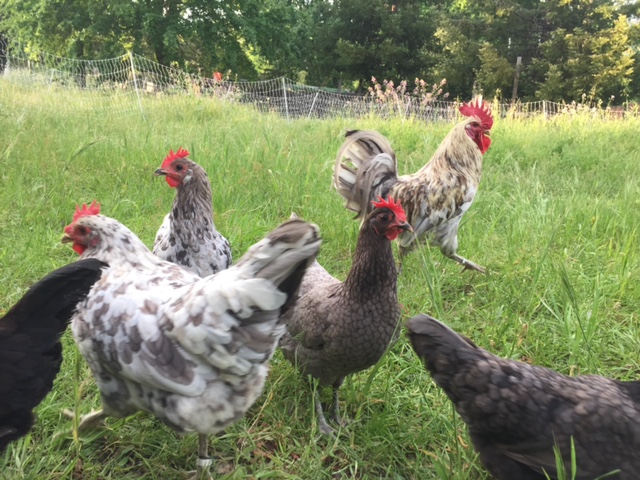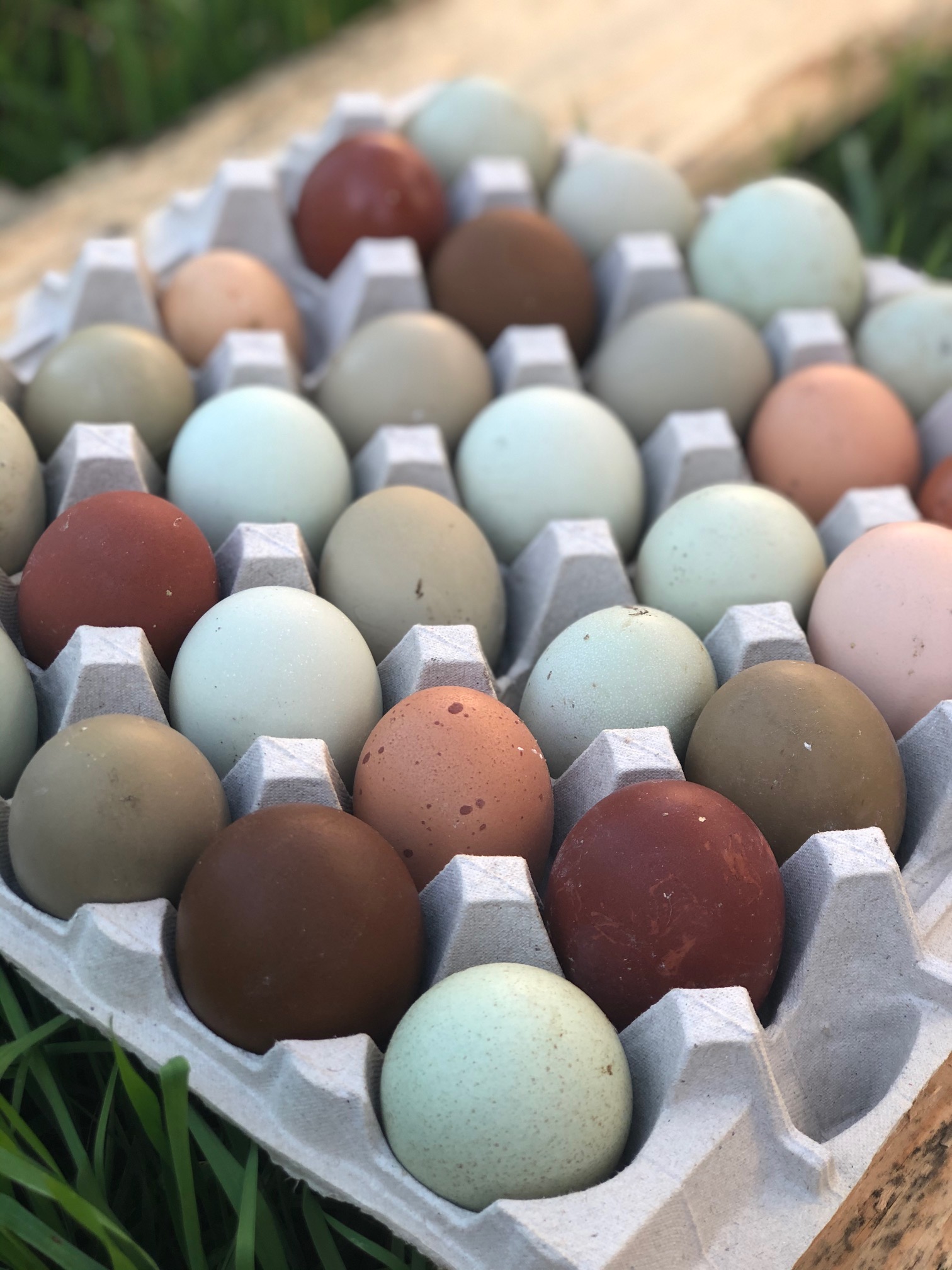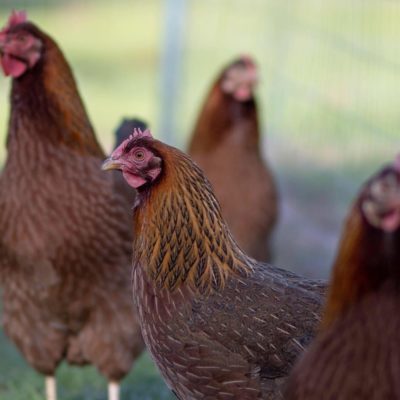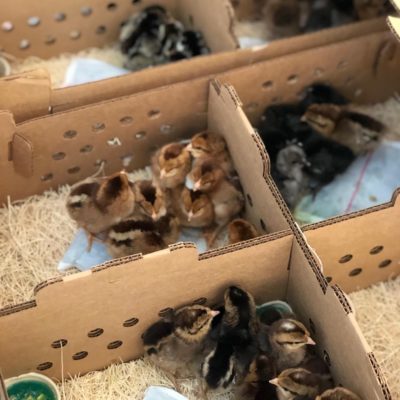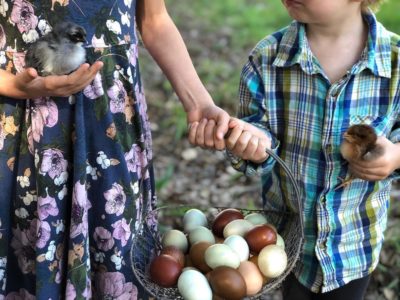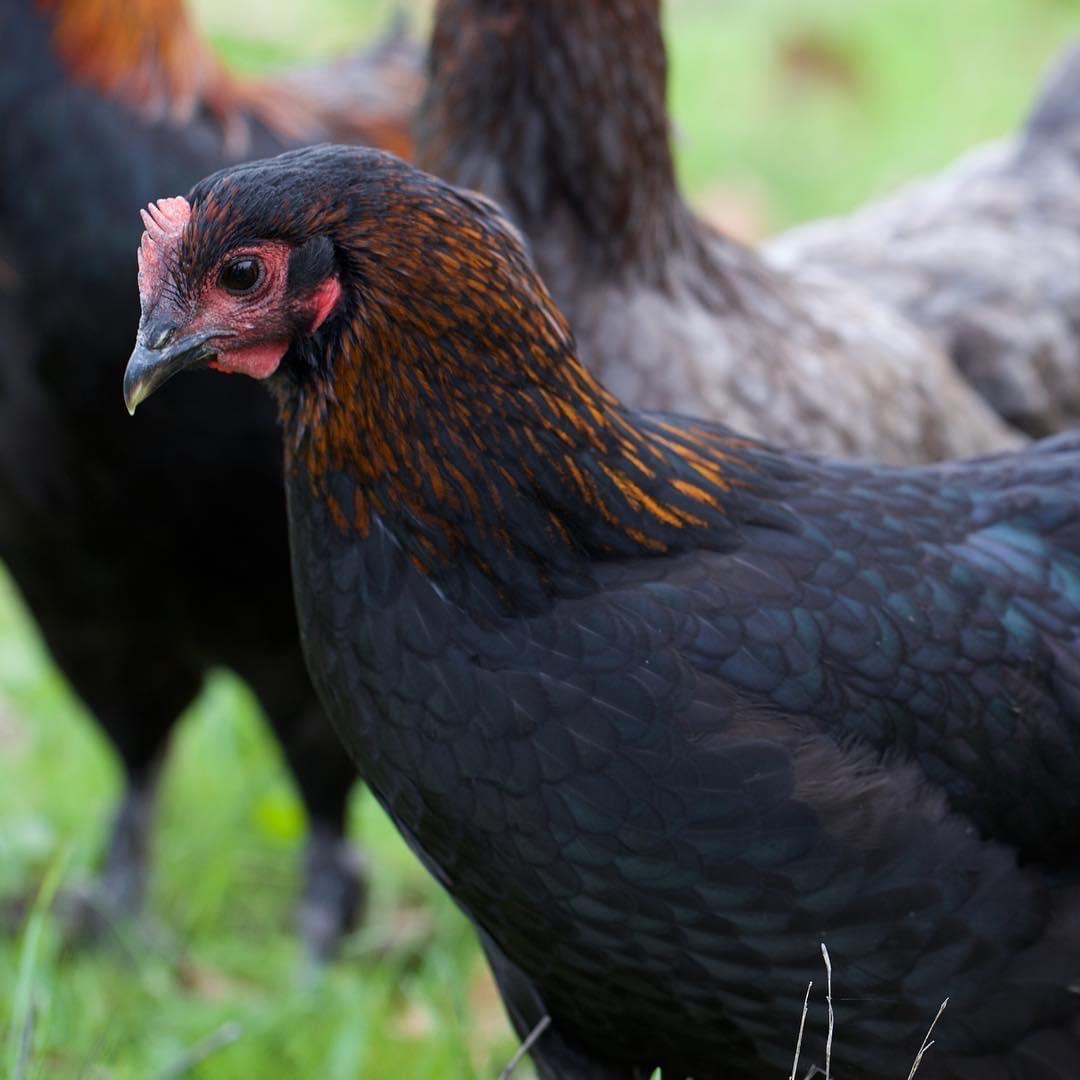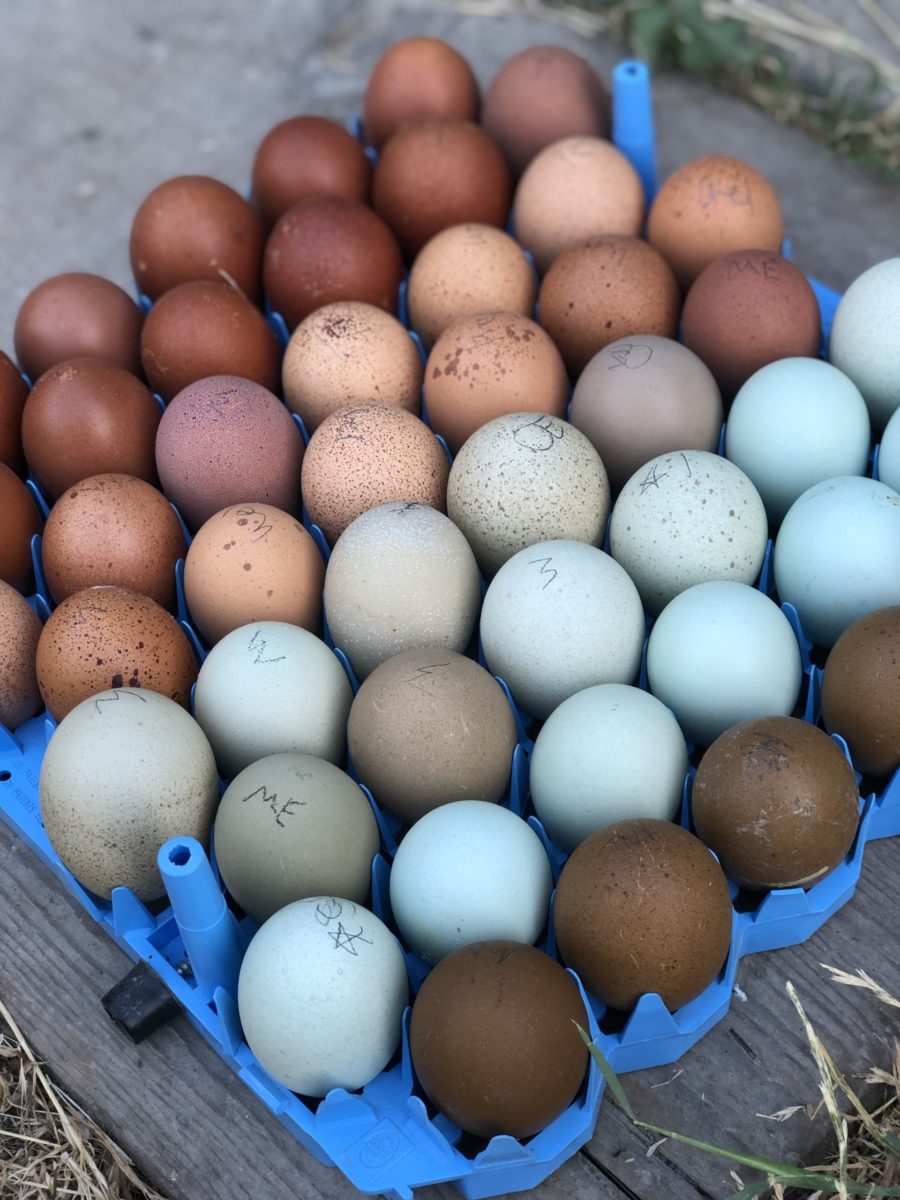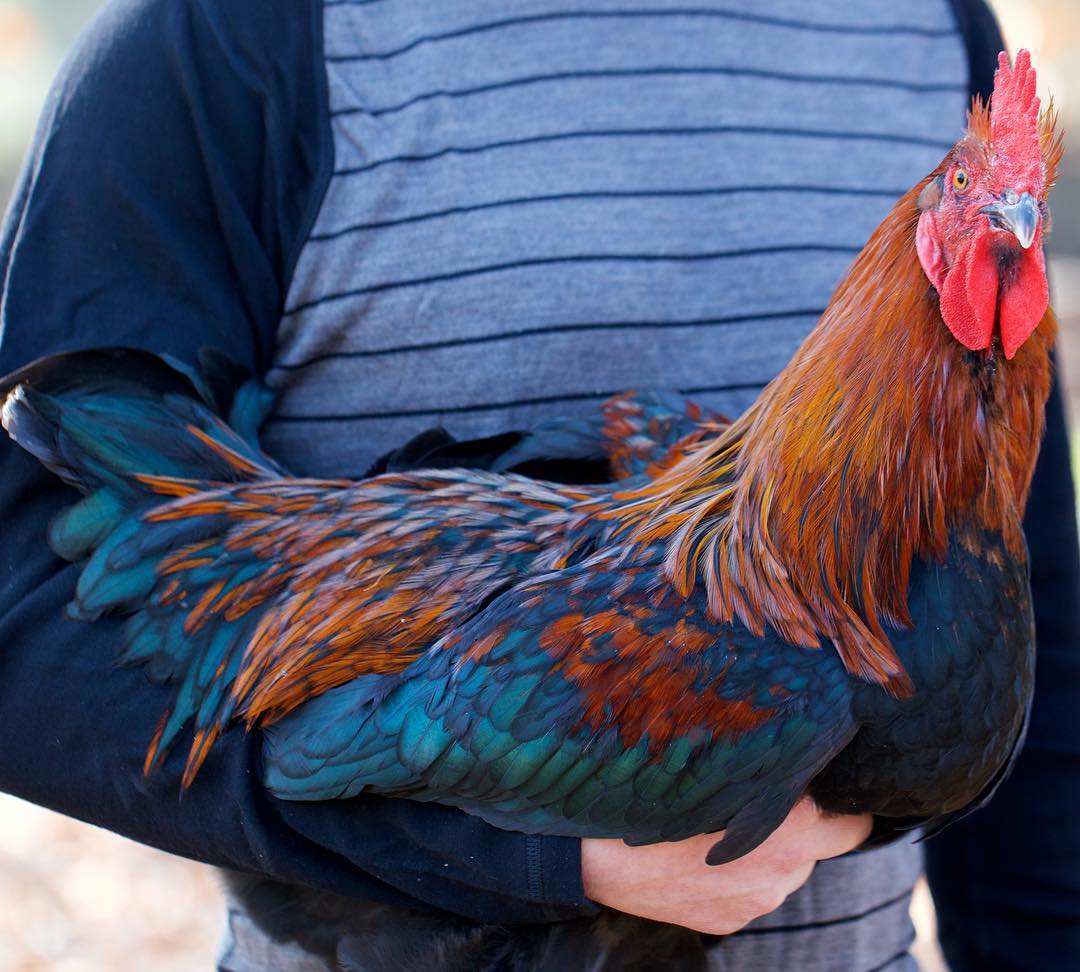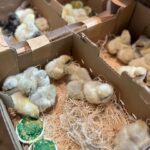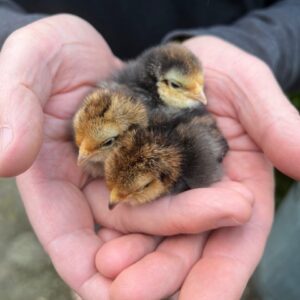This is an excellent question! The answer ultimately lies in asking yourself why you are keeping chickens? Is It for pets? Pest control? Egg production?
If the answer is eggs for you and your family then the question of how many chicks to start with lies in how many eggs you would like to be receiving per day when they are old enough to lay.
Baby chicken chicks are sold in two ways, “sexed” and “straight run” the sexed chicks are sold as guaranteed males or females. Straight run chicks do not reveal their gender upon hatch and are sold with a 50/50 chance of being male or female. We offer 13 breeds for sale. These breeds are offered as sexed and the rest such as our moss eggers (who lay dark green eggs) and our marans chicken (who lay dark chocolate eggs) are sold straight run.
Lets say you are a family of 4 looking to receive 8 eggs a day in the long run:
Egg Production:
First and foremost, it’s important to understand that not all chickens will lay eggs every day. Egg production depends on the breed of chicken, the age of the bird, and various other factors like diet and living conditions. In general, you can expect a laying hen to produce about 5-7 eggs per week, or roughly 20-28 eggs per month.
Family Size:
To determine how many eggs you need per day, consider the size of your family and how many eggs each person is likely to consume. If each person in your family eats two eggs per day, then you’ll need a total of 8 eggs per day.
Chick Quantity:
Assuming you’re starting with straight run chicks, it’s important to keep in mind that roughly half of them will be male and will not lay eggs. If you want to end up with 8 laying hens, you’ll need to start with at least 16 chicks to ensure that you have enough females. This way, even if a few of them turn out to be roosters, you’ll still have enough hens to meet your egg production needs.
Plan for the Future:
It’s also important to consider the long-term when starting a flock of chickens. Chickens can live for several years, so it’s important to plan for their care and egg production needs beyond the first year. If you want to ensure a steady supply of eggs, you may want to consider adding new chicks to your flock every year or so to replace aging hens.
Once you get into the groove and practice of keeping chickens, adding some new young layers to your existing flock will feel natural and easy.
